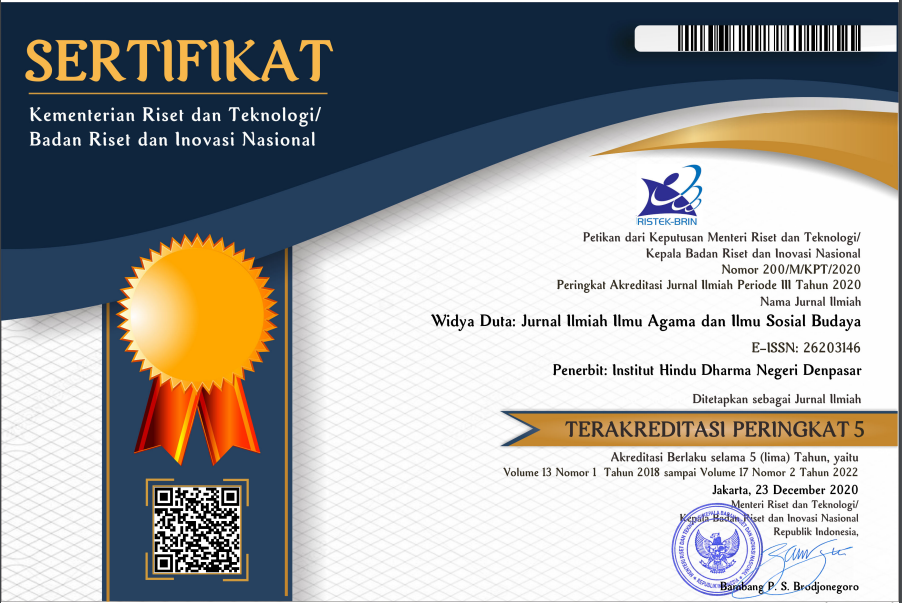KOMUNIKASI RITUAL DALAM UPACARA TAWUR LABUH GENTUH DI TAMAN MAYURA KOTA MATARAM
DOI:
https://doi.org/10.25078/wd.v16i1.392Keywords:
Ritual communication, Ceremony, Hinduism, Tawur labuh gentuhAbstract
Communication is a fundamental need in human life. By
communicating, humans interact with God, fellow humans and the natural
environment to establish a harmonious life. Hindus in West Nusa Tenggara
carry out a tawur labuh gentuh ceremony at Mayura Park, Mataram City
implementing the tri hita karana concept. In the process of implementing
the tawur labuh gentuh ceremony, communication dynamics occur using
symbols that need to be understood together. This study, entitled "Ritual
Communication in the Tawur Labuh Gentuh Ceremony in Mayura Park,
Mataram City", raises the issue, namely how is the form of ritual
communication in the tawur labuh gentuh ceremony in Mayura Park,
Mataram City? The general purpose of this research is to broaden scientific
insight about ritual communication and provide explanations to various
parties regarding the tawur labuh gentuh ceremony so that it can be
socialized to the public and to religious institutions in making a policy. Its
specific purpose is to describe and analyze the form of ritual
communication in the tawur labuh gentuh ceremony in Mayura Park,
Mataram City.
This research was conducted using qualitative methods, so that
the data analysis was carried out in a descriptive qualitative and
interpretative manner. Mayura Park, Mataram City, West Nusa Tenggara
Province was chosen as the research location because the tawur labuh
gentuh ceremony was held in a large degree for the first time in this place.
Besides that, the limited information makes Hindus not all know the
procession and the meaning of the ceremony from beginning to end, so it
is deemed necessary to conduct research as a reference source. This form
of ritual communication in the tawur labuh gentuh ceremony combines
two theories used as a scalpel, namely Jurgen Habermas Communicative
Action Theory and Charles Sander Pierce's Theory of Communication
Semiotics.




